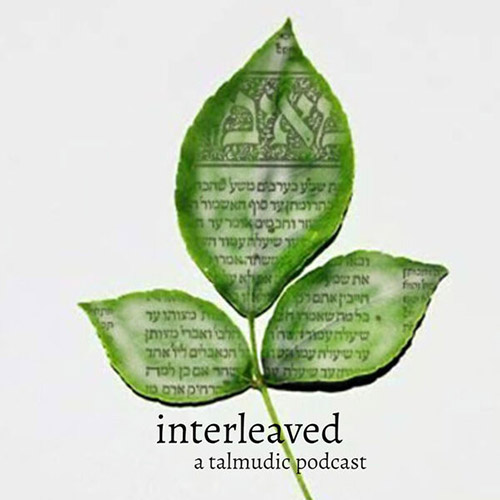

Daf Yomi is hard. Whether you use Artscroll, Koren, Mesivta or listen to a shiur, the commitment to learn an entire page of Gemara every day is a demanding one. And it’s not even about the time commitment necessarily. Some days you just don’t feel like getting up early for your pre-Shacharit shiur, or you’ve had a long day at work and don’t have the mental energy left to follow the shakla v’tarya. And other days, it’s just not that interesting. Learners who made it through Eruvin, with its pages and pages of improbable architectural configurations and tangles of abstract concepts, can certainly relate to this. And the distractions of working from home certainly don’t help.
For those who have the luxury of extra time, studying a daf b’iyun, delving into the conceptual underpinnings of a sugya by learning the commentaries of Rishonim and Acharonim, can be an effective strategy to stay motivated. When one has a grasp on the larger themes running through a masechta, even learning the daf quickly can be more enriching. That’s why initiatives like the OU’s All Daf app are so valuable; they provide learners with the resources to get as much out of their learning as time allows.
But not everyone has that kind of time. And just as importantly, other learners are looking for a different kind of resource—one that draws from the wisdom of the world to help us understand Torah better. Whether you’re interested in historical, scientific, archaeological, or text-critical perspectives, integrating them into your learning can be a great way to keep you interested and uncover the sanctity hidden in these fields of knowledge. In fact, the Dati Leumi thinker Rav Shagar was a strong proponent of this approach, which he writes about in his book B’Torato Yehgeh. And to some extent, the Koren edition of the Talmud Bavli adopts this approach in its sidenotes, providing historical context, when applicable, for artifacts and events mentioned in the Gemara, as well as helpful photographs and illustrations.
But as someone who is fascinated by pretty much everything, and feels that it is important to connect one’s experience of the world with Torah as much as possible, this wasn’t enough for me. If I was going to start Daf Yomi and stick with it, I needed some kind of project or creative outlet that would truly bring the daf to life. That’s why I started Interleaved: A Talmudic Podcast. Every two weeks I interview a different guest, often an academic or creative type, who is an expert in their field. I invite them, modern-day sages as it were, to talk about their field of expertise as it relates to topics that come up in the daf. Now almost a year into the project, with almost 20 episodes recorded, I have never felt more connected to learning Gemara. Not only do I get to learn new things from every guest, but the insights they share with me only further illuminate the brilliance and timeless wisdom of Chazal. Here are some of the amazing things I’ve learned over the past year:
There is a charedi community in Yerushalayim that still uses the Ottoman time system, which resets the clock at sunset every day.
There is a Gemara that suggests that the purpose of shiva is to comfort the deceased for losing their life, not their family members.
There are hidden gates attached to light poles on the Upper West Side of Manhattan that used to be part of the Manhattan eruv, and a curator from the YU Museum snatched one of them in the middle of the night!
Rav Herschel Schachter uses orange in his charoset because he believes a tapuach is an etrog, not an apple (and etrogim aren’t available on Pesach).
The Jews of Alsace-Lorraine, in eastern France, have a custom to use white wine for the Four Cups at the Seder because their ancestors did out of concern for blood libels.
There’s another reason I started this podcast, though: I love learning from other Jews. Sure, there are plenty of podcasts out there that interview the big names, the up-and-coming stars in the Jewish community; you might have heard of Jews You Should Know or Meaningful People. But I truly believe every Jew has something to teach the world. For that reason I made it my mission to highlight the Jews who might be less well-known, but whose Torah and insights are no less precious. So whether you or someone you know is an expert in baking sourdough bread, basketball statistics, or 1980s cartoon characters, I invite you to open a Gemara, find a connection, and pitch it to us. We can’t wait to learn from you!
Netanel Zellis-Paley is a Ph.D. student in school psychology at Temple University and host of Interleaved: A Talmudic Podcast, which is produced by Adina Karp. He lives in Philadelphia with his wife Arielle and son Nafshi. You can find Interleaved on Facebook and Twitter and pitch guests and topics to him at [email protected], or in a review on Apple Podcasts!













